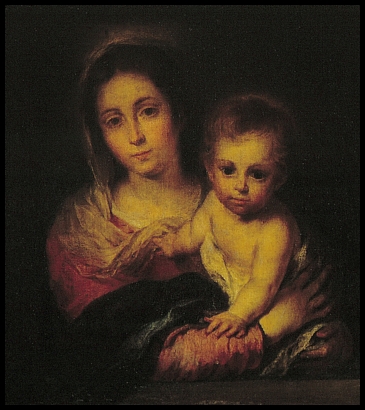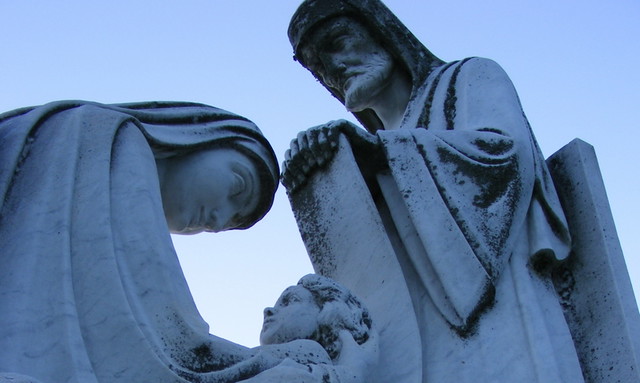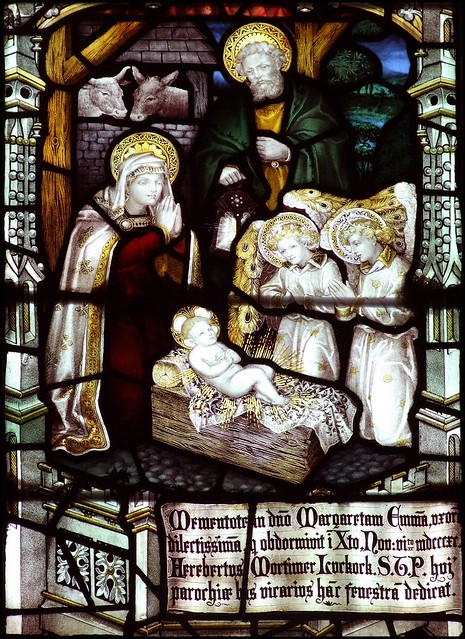My dear brothers and sisters, a few days ago one of
the members of my pastoral council sent me the following letter, and although a
few days ago we celebrated Christmas Eve, I think that Jesus continues to speak
to the heart of each. I hope this text will be useful for our time of prayer
with the Lord. Peace and blessings,
. . .
Brothers and Sisters loved by my Father, it has come to MY attention that
many of you are upset that folks are taking My name out of the season. How I personally feel about this
celebration can probably be most easily understood by those of you who have
been blessed with children of your own. I don't care what you call the day. If
you want to celebrate My birth, just GET ALONG AND LOVE ONE ANOTHER.
Now, having said that let Me go on. If it
bothers you that the town in which you live doesn’t allow a scene (in the
public square) depicting the Nativity then place one on your own front lawn. If
enough people did that, there wouldn’t be a need to have such a scene in the
public square, because there would be many of them all around town.
Stop worrying about the fact that people are
calling the tree a holiday tree, instead of a Christmas tree. It was I who made
all trees. You can remember Me anytime you see any tree. Decorate a grape vine
if you wish: I actually spoke of that one in a teaching, explaining who I am in
relation to you and what each of our tasks were. If you have forgotten that
one, look up John 15: 1 - 8.
If you want to give Me a present in remembrance
of My birth here is my wish list. Choose something from it:
1. Instead of writing protest letters objecting
to the way My birthday is being celebrated, write letters of love and hope to
soldiers away from home. They are terribly afraid and lonely this time of year.
I know, they tell Me all the time.
2. Visit someone in a nursing home. You don't
have to know them personally. They just need to know that someone cares about
them.
3. Instead of writing the President complaining
about the wording on the cards his staff sent out this year, why don't you
write and tell him that you'll be praying for him and his family at Mass this
year. Then follow up... It will be nice hearing from you again.
4. Instead of giving your children a lot of
gifts you can't afford and they don't need, spend time with them. Tell them the
story of My birth and My Mother, and why I came to live with you down here.
Hold them in your arms and remind them that I love them.
5. Pick someone that has hurt you in the past
and forgive him or her.
6. Did you know that someone in your town will
attempt to take their own life this season because they feel so alone and
hopeless? Since you don't know who
that person is, try giving everyone you meet a warm smile; it could make the
difference.
7. If you really want to make a difference,
support a missionary-- especially one who takes My love and Good News to those who
have never heard My name.
8. Here's a good one. There are individuals and
whole families in your town who not only will have no "Christmas"
tree, but neither will they have any presents to give or receive. If you don't
know them, buy some food and a few gifts and give them to the Friendship House
or some other charity that believes in Me and they will make the delivery for
you.
9. Finally, if you want to make a statement
about your belief in and loyalty to Me, then behave like a Christian. Don't do
things in secret that you wouldn't do in My presence. Let people know by your actions
that you are one of mine that you belong to Me.
Don't forget; I am God and can take care of
Myself. Just love Me and do what I have told you to do. I'll take care of all
the rest. Check out the list above and get to work; time is short. I'll help
you, but the ball is now in your court. And do have a most blessed end of the
year with all those whom you love and remember
And remember: I LOVE YOU,
Jesus of Nazareth














